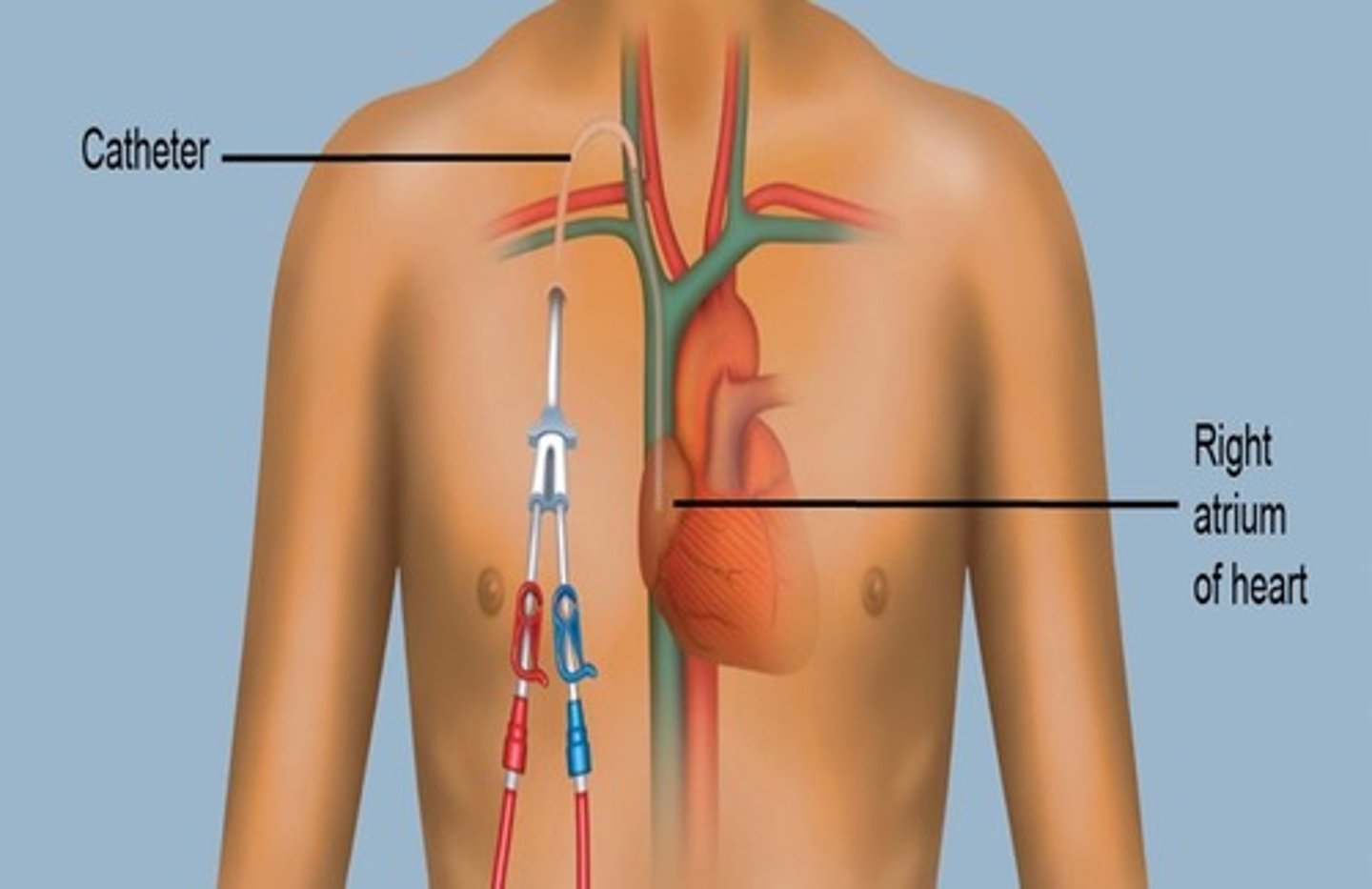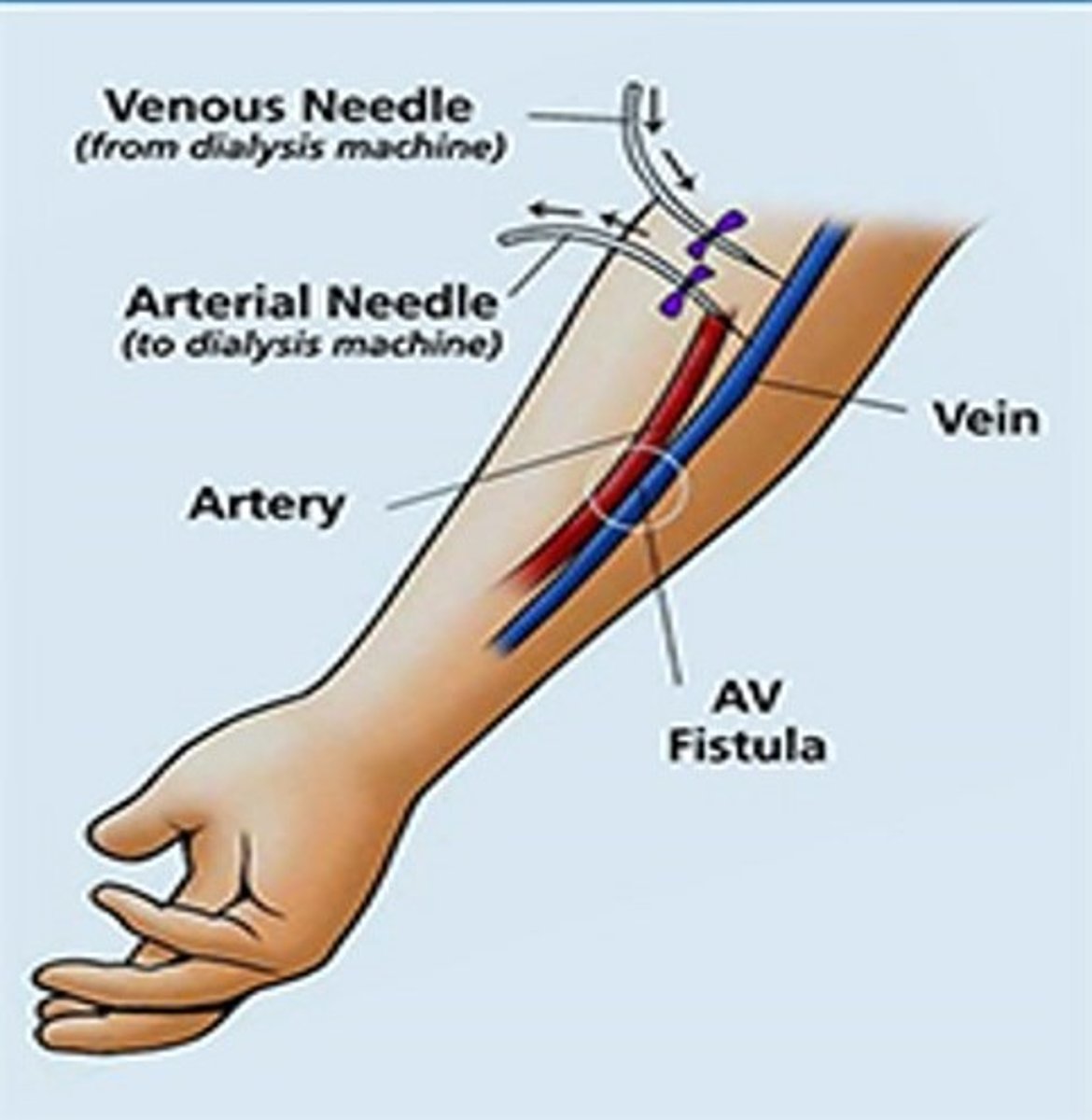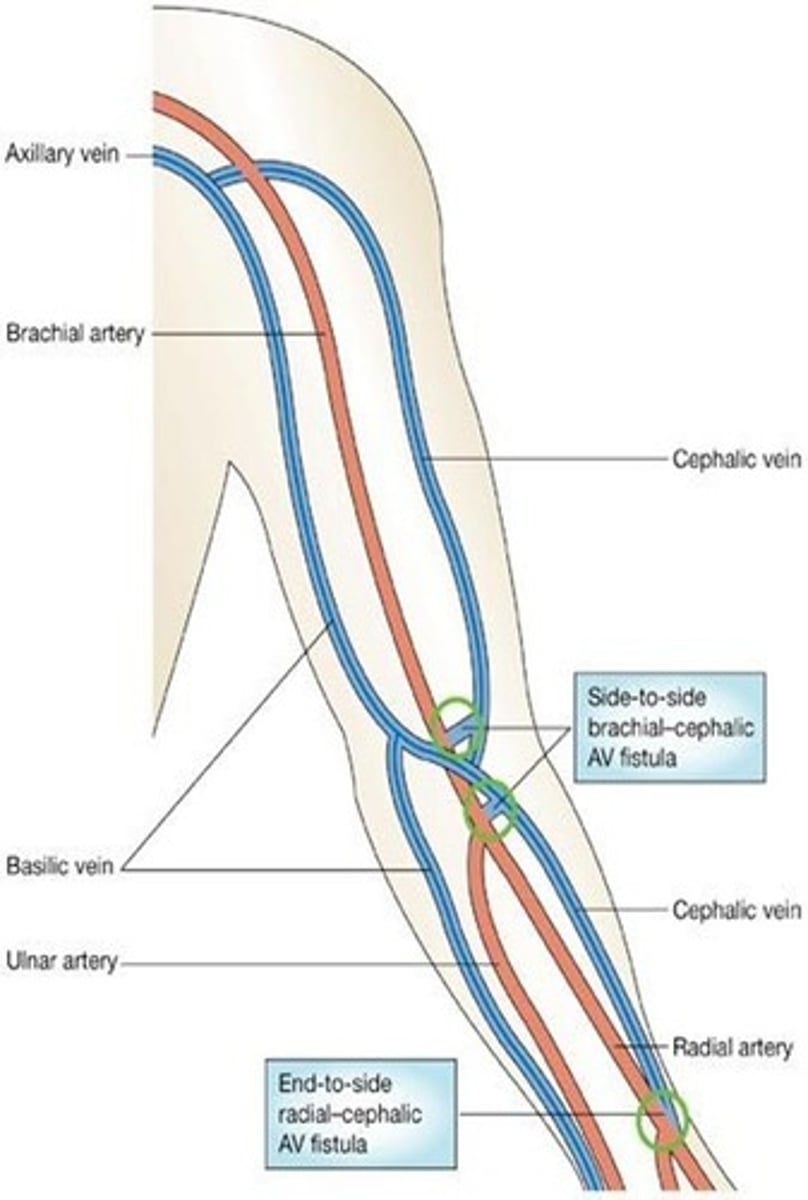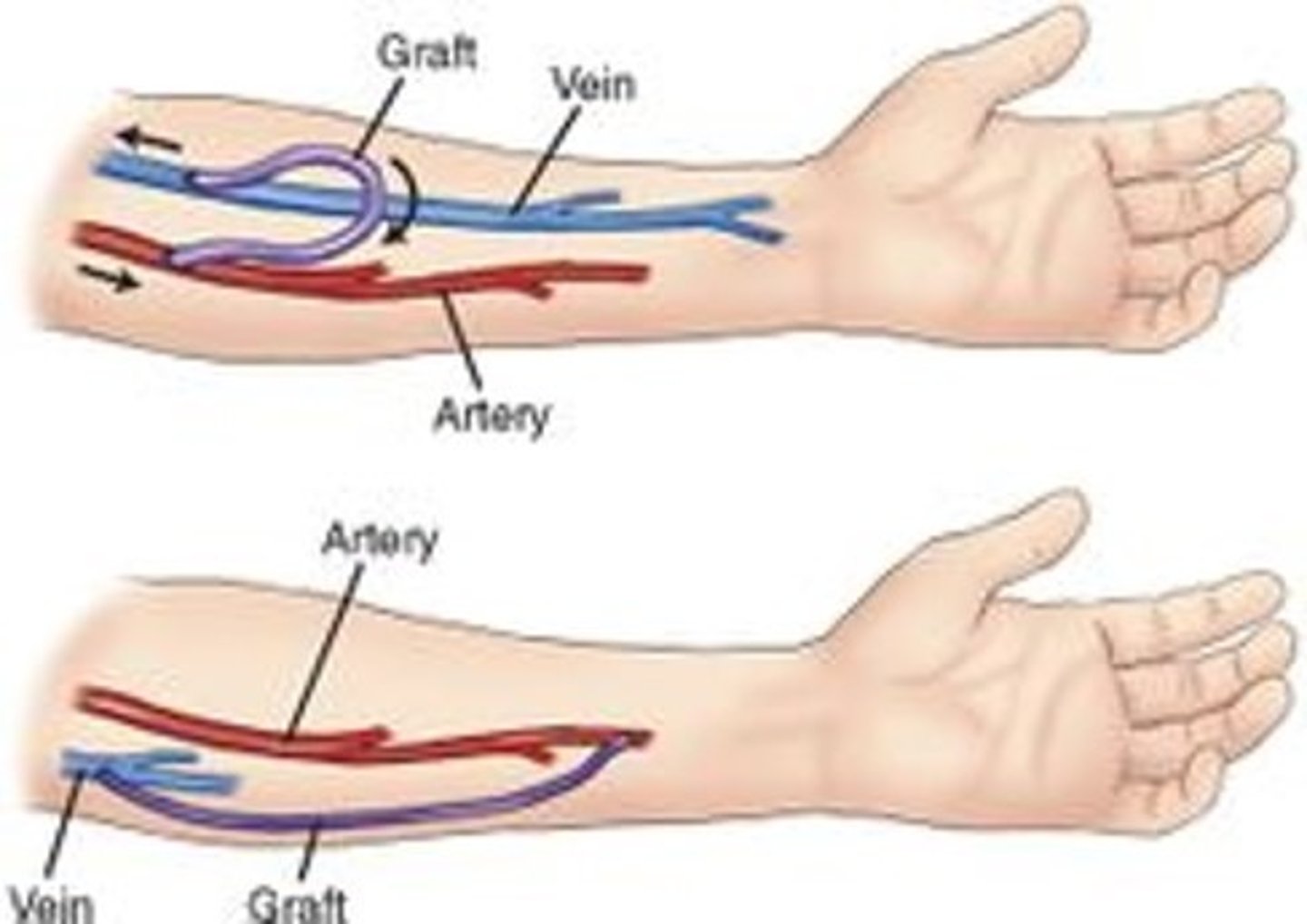Hemodialysis Access Fistulas & Grafts
1/41
There's no tags or description
Looks like no tags are added yet.
Name | Mastery | Learn | Test | Matching | Spaced |
|---|
No study sessions yet.
42 Terms
c. insulin
All of the following waste products are removed from the blood via hemodialysis except:
a. urea
b. free water
c. insulin
d. creatinine
a. 300,000-400,000
___________ patients in the USA are dialysis dependent.
a. 300,000-400,000
b. 10,000-20,000
c. 500,000-600,000
d. One million
Hemodialysis
___________ is a procedure where a dialysis machine and a special filter called an artificial kidney, or a dialyzer, are used to clean your blood.
to help impaired renal function
What is the main purpose of dialysis?
peri-graft abscess
A _________ is a pocket of pus that's caused by a bacterial infection.
central venous catheter
A _________ is a thin, flexible tube that is inserted into a vein, usually below the right collarbone, and guided (threaded) into a large vein above the right side of the heart.

AV fistula
A ___________ is a surgically created communication between the native artery and the vein in an extremity.

Brescia-Cimino [arteriovenous] fistula
The __________ is the preferred method of providing vascular access for hemodialysis in patients with end-stage renal disease

Radial A to Cephalic V
What is the most common connection for the Brescia-Cimino fistula?
D. in the non-dominant arm
Which arm is a native access fistula typically placed in?
A. always the left
B. always the right
C. in the dominant arm
D. in the non-dominant arm
B. easy installation
All of the following are benefits of arterial-venous fistulas (AVF) EXCEPT:
A. autogenous
B. easy installation
C. long term patency
D. low complication rate
mature
If not, adequate flow volume may not occur due to inconsistent vein diameter.
Native access fistulas must be allowed to ________ before use.
increased intraluminal pressure
In a patient with a native access fistula, vein segments can become lumpy and sausage shaped over time due to ___________.
B. used between 2 veins
Which of the following does NOT apply to synthetic tube grafts:
A. used for dialysis puncture
B. used between 2 veins
C. used when veins are inadequate
D. useful when fistulas have failed
arterial
Access grafts may be tapered at the ________ end to reduce flow volume.

Teflon (PTFE)
Access grafts are usually made of ________.
Access grafts
___________ are commercially known as Gore-Tex.
ultrasound cannot penetrate them
What is the main disadvantage of polyurethane access grafts?
forearm
Grafts and fistulas are usually created initially in the ________.
Grafts, fistulas
_________ tend to have shorter duration and lower patency than _________.
fistulas, grafts
In the US, there is a growing number of ________ compared to ________.
native fistulas
In Europe and Asia, about 80% of hemodialysis patients have _____________.
D. > 2mm
Preoperative arterial lumen diameter must be _______.
A. < 3mm
B. > 3mm
C. < 2mm
D. > 2mm
palmar arch
Patients must have adequate arterial inflow and a patent _________.
Allen test
The __________ is used to assess the patency of the palmar arch.
< 20 mmHg
Prior to fistula placement, a _______ mmHg pressure gradient must exist between bilateral brachial pressures.
≥ 50 cm/sec
Preoperatively, the patient must have a patent palmar arch, no artery stenosis or occlusion, and a distal radial velocity PSV ________ cm/sec.
≥ 4mm
Preoperative vein lumen diameter must be ________mm for a dialysis graft.
1 cm
Prior to the placement of a dialysis graft or AVF placement, the assessed vein must be within _____ cm of the skin surface.
A.
elevated RIGHT heart pressure can occur
Complications that can occur in patients with grafts/fistulas include all EXCEPT:
A. elevated left heart pressure
B. arterial steal
C. aneurysms and pseudoaneurysms
D. thrombosis/occlusion
false
True or False: Blood pressure can be taken over a synthetic graft.
pseudoaneurysms
In patients with grafts/fistulas, lumps may indicate ________.
upper brachial to distal radial artery
During a general ultrasound survey of a graft/fistula, scan from ________ to _________ artery.
occlusion
High resistance arterial flow proximal to the fistula is indicative of fistula _________.
graft, fistula
Vein stenosis is more likely to occur with a _______ than a _______.
high, low
In a normal graft/fistula, there should be _______ flow and _______ resistance.
> 2:1
When assessing a graft/fistula, a doctor should be notified if there's any velocity ratio that's ______.
B. Incomplete palmar arch
In a patient with a hemodialysis access forearm loop graft, digital ischemia can result from which of the following conditions?
A. Thrombosed hemodialysis access graft
B. Incomplete palmar arch
C. Pseudoaneurysm
D. Venous outflow obstruction
D. Basilic
Which of the following veins does not have an accompanying artery?
A. Subclavian
B. Axillary
C. Brachial
D. Basilic
C. 2.5 mm
What is considered to be the lowest vein diameter suitable for an arterial to venous hemodialysis fistula?
A. 1.5 mm
B 2.0 mm
C. 2.5 mm
D. 2.0 mm
D. Vectra
Which of the following grafts is impenetrable by ultrasound?
A. Gore-tex
B. Bovine
C. Atrium
D. Vectra
D. Patent palmar arch
Revere flow detected in the distal radial artery of an ipsilateral radial artery to basilic vein graft indicates which of the following conditions?
A. Impending graft failure
B. Occluded ulnar artery
C. Incompetent palmar arch
D. Patent palmar arch